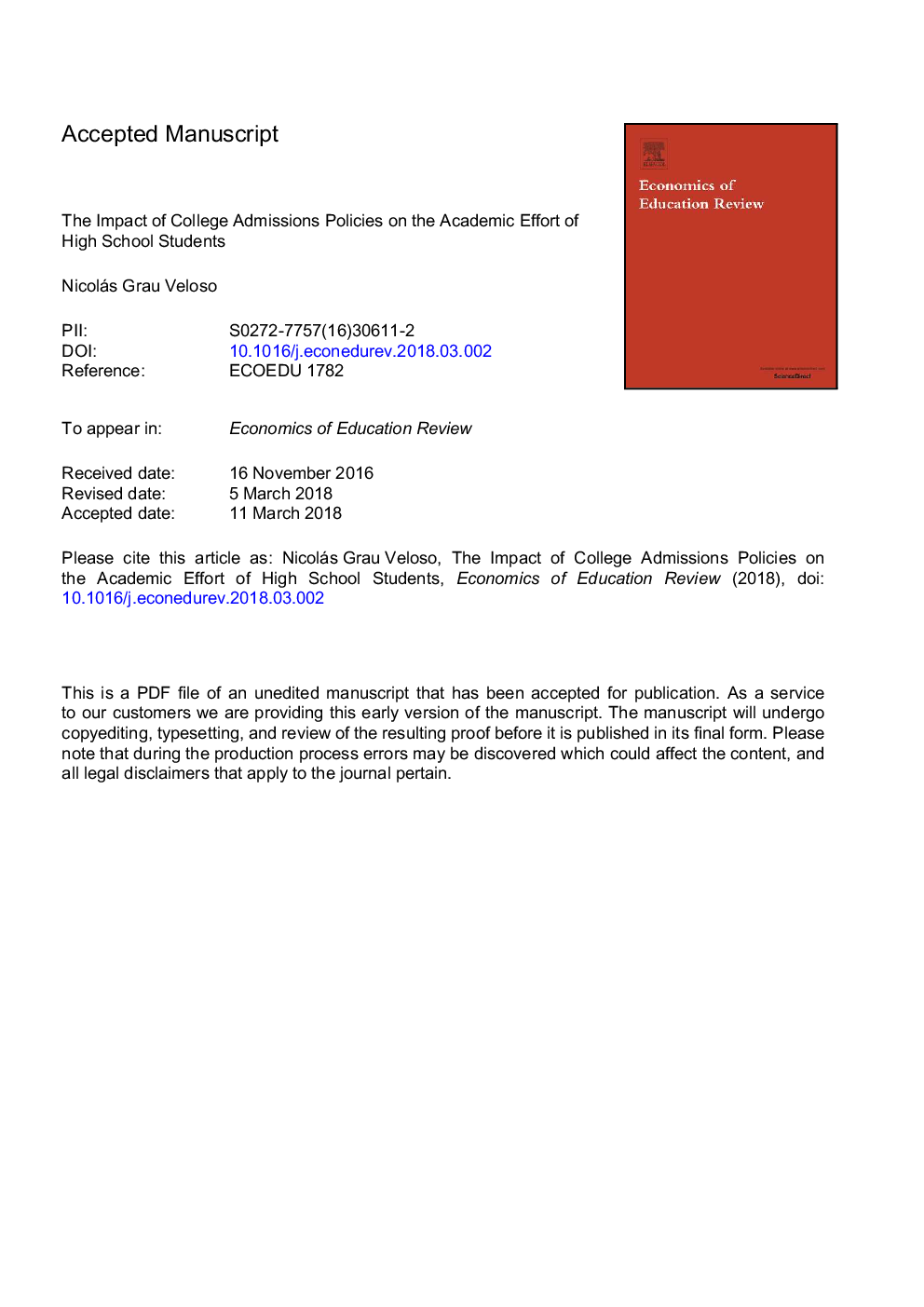| Article ID | Journal | Published Year | Pages | File Type |
|---|---|---|---|---|
| 6840763 | Economics of Education Review | 2018 | 75 Pages |
Abstract
This paper empirically evaluates the effects of college admissions policies on high school students' academic effort. I build a rank-order tournament model where high school students decide their level of effort and whether or not to take the college admissions test, considering how those decisions affect their future university admissions chances. Using administrative Chilean data for the 2009 college admissions process, I structurally estimate the parameters of the model. Two affirmative action policies are simulated: (a) SES-quota system, which imposes the population's socioeconomic group (SES) distribution for each university; (b) increasing the weight of high school GPA in the admission final score. These simulations support the claim that affirmative action in college admission may boost the amount of academic effort exerted by high school students. I also find that while increasing the weight of high school GPA is more effective in boosting students' academic effort in high school, the SES-quota system is more efficient in allocating the best students to the best universities.
Related Topics
Social Sciences and Humanities
Economics, Econometrics and Finance
Economics and Econometrics
Authors
Nicolás Grau,
